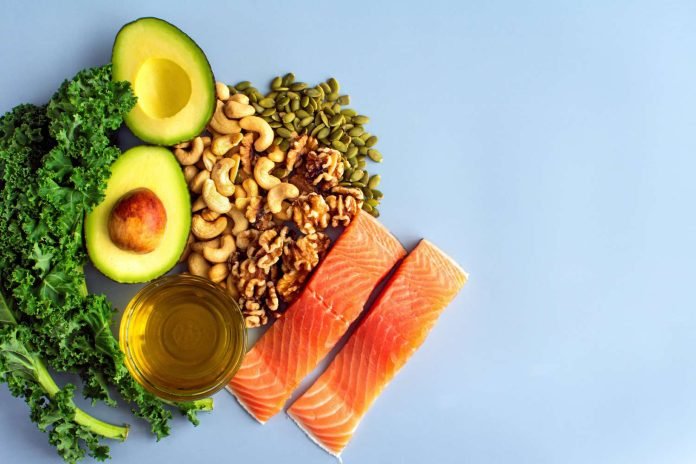
In today’s fast-paced world, where convenience often trumps health, maintaining a heart-healthy diet is more important than ever. Heart disease remains a leading cause of mortality worldwide, but the good news is that many of its risk factors, including poor diet, are within our control.
A well-balanced diet rich in heart-healthy foods can significantly reduce the risk of cardiovascular diseases, such as heart attacks and strokes. In this comprehensive guide, we’ll explore the top food items that promote heart health and provide tips on incorporating them into your daily meals.
Why is Heart Health Important?
The heart is a vital organ responsible for pumping blood throughout the body, delivering essential nutrients and oxygen to cells while removing waste products. A healthy heart ensures proper circulation and optimal functioning of all body systems.
Poor diet, high in saturated fats, cholesterol, and sodium, can lead to the development of various cardiovascular conditions, including hypertension, atherosclerosis, and coronary artery disease. By choosing the right foods, you can actively protect your heart and reduce the risk of these ailments.
The Power of Heart Healthy Foods
A heart-healthy diet emphasizes whole, nutrient-rich foods that support cardiovascular health. These foods are typically low in saturated fats, trans fats, cholesterol, and sodium, while being rich in fiber, vitamins, minerals, and antioxidants. Let’s delve into the top food items that should be on your shopping list:

- Fatty Fish
Fatty fish like salmon, mackerel, trout, and sardines are excellent sources of omega-3 fatty acids, which are known to reduce inflammation and lower the risk of heart disease. Aim for at least two servings of fatty fish per week to reap the benefits.
- Berries
Berries such as strawberries, blueberries, raspberries, and blackberries are packed with antioxidants, particularly flavonoids and anthocyanins, which have been linked to improved heart health. Add them to your breakfast oatmeal, yogurt, or enjoy them as a snack.
- Leafy Greens
Dark leafy greens like spinach, kale, and Swiss chard are rich in vitamins, minerals, and dietary nitrates that help lower blood pressure and improve arterial function. Incorporate them into salads, soups, or smoothies for a heart-healthy boost.
- Whole Grains
Swap refined grains for whole grains like oats, quinoa, brown rice, and whole wheat bread. These grains are high in fiber, which aids in reducing cholesterol levels and promoting heart health.
- Nuts and Seeds
Almonds, walnuts, chia seeds, and flaxseeds are packed with heart-healthy nutrients, including unsaturated fats, fiber, and plant sterols. Snack on a handful of nuts or sprinkle seeds over salads and yogurt for added crunch and nutrition.
- Avocado
Avocado is a rich source of monounsaturated fats, which help lower bad cholesterol (LDL) levels while raising good cholesterol (HDL) levels. Enjoy avocado slices on toast, salads, or blend them into a creamy smoothie.
- Legumes
Beans, lentils, and chickpeas are excellent sources of protein, fiber, and antioxidants, making them ideal for heart health. Incorporate them into soups, stews, salads, or use them as a meat substitute in various dishes.
- Olive Oil
Extra virgin olive oil is a staple of the Mediterranean diet, known for its heart-protective properties. Use it for cooking, salad dressings, or drizzle it over roasted vegetables for a flavorful and heart-healthy dish.
- Tomatoes
Tomatoes are rich in lycopene, a powerful antioxidant that helps reduce the risk of heart disease by lowering LDL cholesterol and reducing inflammation. Add fresh tomatoes to salads, sandwiches, or cook them into sauces and soups.
- Dark Chocolate
Dark chocolate with a high cocoa content is loaded with flavonoids, which can improve heart health by reducing blood pressure and improving blood flow to the heart and brain. Enjoy a small piece of dark chocolate as an occasional treat.
Tips for Incorporating Heart Healthy Foods into Your Diet
Now that you know the top heart-healthy foods, here are some tips to help you incorporate them into your daily meals:
- Plan Ahead: Plan your meals and snacks in advance to ensure you have heart-healthy options readily available.
- Experiment with Recipes: Get creative in the kitchen by trying out new recipes that incorporate these heart-healthy ingredients.
- Gradual Changes: Start by making small changes to your diet, such as swapping out unhealthy snacks for nuts or fruit.
- Read Labels: Pay attention to food labels and choose products low in saturated fats, trans fats, cholesterol, and sodium.
- Stay Hydrated: Drink plenty of water throughout the day, as proper hydration is essential for heart health.
- Moderation is Key: While these foods are beneficial, moderation is key. Balance your diet and avoid excessive consumption of any single food item.
Conclusion
A heart-healthy diet is a cornerstone of cardiovascular health. By incorporating nutrient-rich foods like fatty fish, berries, leafy greens, whole grains, nuts, and olive oil into your meals, you can protect your heart and reduce the risk of heart disease. Remember to make gradual changes, stay hydrated, and enjoy a balanced diet for optimal heart health. Start nourishing your heart today for a healthier tomorrow!




























